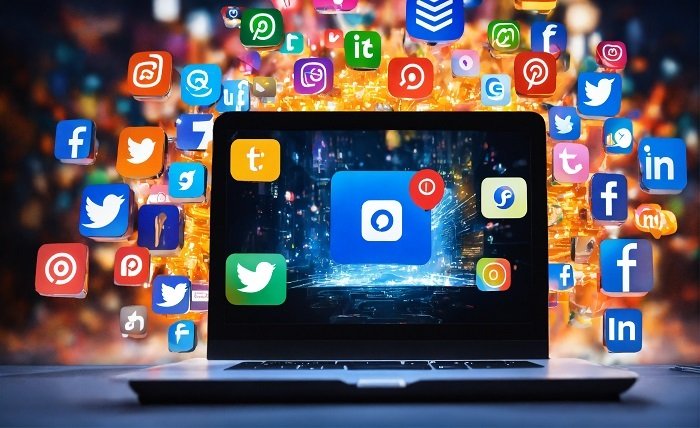Social media has become one of the most influential forces of the 21st century. In the UK, millions of people engage daily with platforms such as Facebook, Instagram, TikTok, and X (formerly Twitter). These networks have transformed communication, entertainment, and even business, making them central to everyday life.
The Scale of Social Media Use in the UK
Statistics highlight the extent of social media adoption:
- Over 57 million active users are estimated across different platforms in the UK.
- Average daily use exceeds two hours per person.
- TikTok has become the fastest-growing platform among younger audiences.
- Facebook and Instagram remain strong across multiple demographics.
The sheer scale of engagement shows how these platforms have moved from novelty to necessity in less than two decades.
The Impact on Communication
Social media has reshaped the way people connect with one another. Instead of relying solely on phone calls or in-person meetings, individuals now communicate through direct messages, group chats, and live streams. Key changes include:
- Instant updates – News, events, and opinions spread rapidly.
- Visual storytelling – Platforms prioritise photos, videos, and short clips.
- Global reach – People can communicate across borders at no cost.
- Community building – Groups and forums connect people with shared interests.
These developments illustrate how social media has blurred the line between private and public interaction.
Influence on Business and Marketing
Companies across industries now treat social media as an essential business tool. It allows them to:
- Engage directly with customers.
- Launch targeted advertising campaigns.
- Monitor trends in real time.
- Build stronger brand loyalty through interaction.
This shift has given rise to the influencer economy, where individuals with large followings collaborate with brands. In sectors like fashion, travel, and entertainment, influencers often shape purchasing decisions more effectively than traditional advertising.
The Risks and Challenges
While social media offers many opportunities, it also presents challenges that require attention:
- Privacy concerns: Personal data collection and security breaches.
- Misinformation: The rapid spread of false or misleading content.
- Mental health effects: Increased screen time linked to anxiety and stress.
- Online harassment: Abuse and trolling affecting both public figures and private users.
Governments and regulators in the UK are increasingly focusing on online safety, especially for younger audiences.
Social Media and Lifestyle
Beyond communication and business, social media also plays a role in lifestyle choices. Popular trends include:
- Fitness challenges shared on TikTok and Instagram.
- Food content ranging from recipe tutorials to restaurant reviews.
- Travel vlogs offering inspiration for new destinations.
- Gaming and entertainment clips gaining global audiences.
It is within this context that different leisure activities overlap. For example, entertainment platforms often reference industries such as gaming or betting, where mentions of uk-licensed best casinos highlight how regulated services maintain visibility in digital spaces.
Future Developments
Looking forward, social media is expected to evolve in several ways:
- Increased use of virtual and augmented reality for interactive experiences.
- Greater reliance on AI-driven algorithms to shape content feeds.
- Growth of short-form video content as attention spans decrease.
- Stricter regulations on online safety and advertising transparency.
These changes will continue to influence how individuals communicate, consume information, and interact with digital services.
